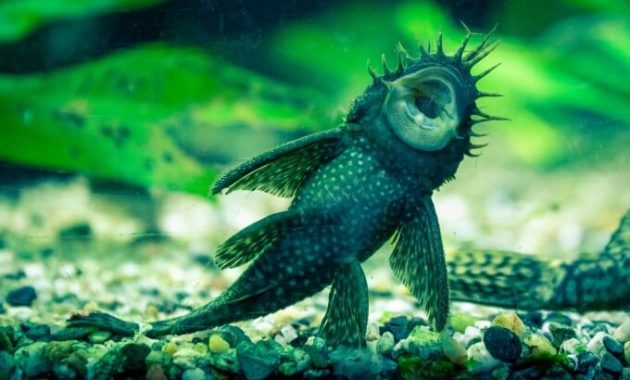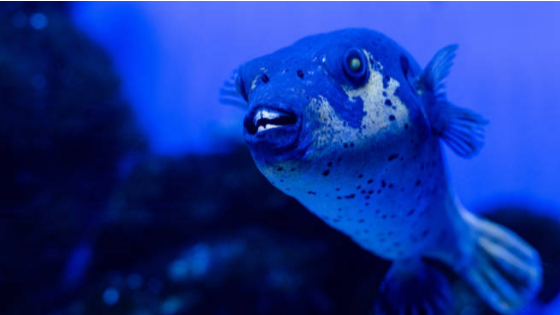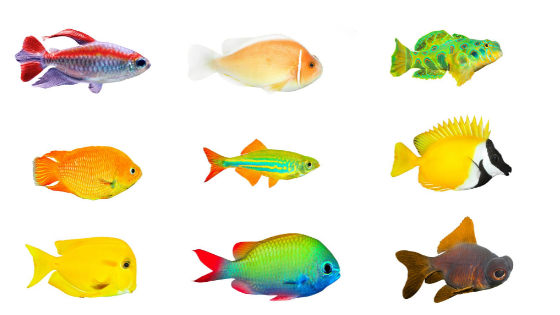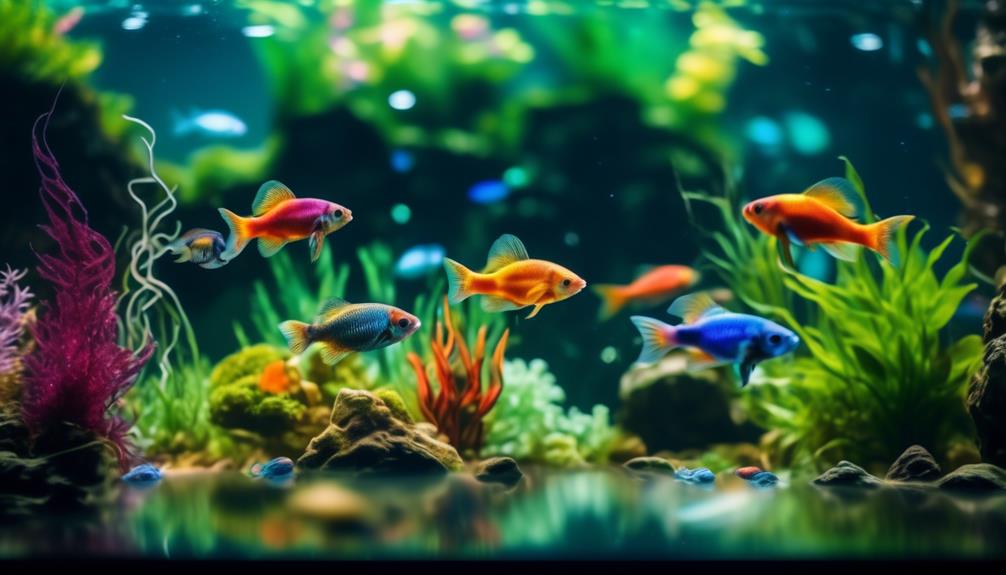
Are you tired of searching for the perfect fish to add to your aquarium, only to be disappointed by their temperament or compatibility?
Well, look no further because Mollies might just be the solution you’ve been searching for. These fascinating freshwater fish are known for their adaptability and peaceful nature, making them an excellent choice for a community tank.
But that’s not all, there’s so much more to discover about these beautiful creatures and why they might just be the perfect fit for your aquatic environment.
Key Takeaways
- Mollies are adaptable to different tank sizes but need enough space to swim and explore.
- Mollies are peaceful fish suitable for a community tank and get along well with tetras, barbs, rasboras, and corydoras catfish.
- Mollies prefer warm water with a pH between 7.0 and 7.8 and can tolerate brackish water conditions.
- Mollies are omnivorous and require a varied diet, and breeding Mollies can be a rewarding experience.
Aquarium Size and Care
When considering the appropriate aquarium size and care for Mollies, it’s important to ensure they’ve enough space to swim and explore. Mollies are active fish that enjoy swimming around, so providing them with a small to medium size aquarium is suitable. They can adapt to different tank sizes, but it’s best to give them ample room to move around.
A larger tank can accommodate a larger number of Mollies, allowing them to interact and thrive. Additionally, it’s crucial to maintain proper filtration and perform weekly care tasks. Regular water changes and monitoring of water parameters are necessary to ensure a healthy environment for the Mollies.
With the right tank size and care, Mollies will flourish and bring joy to your aquarium.
Group and Compatibility
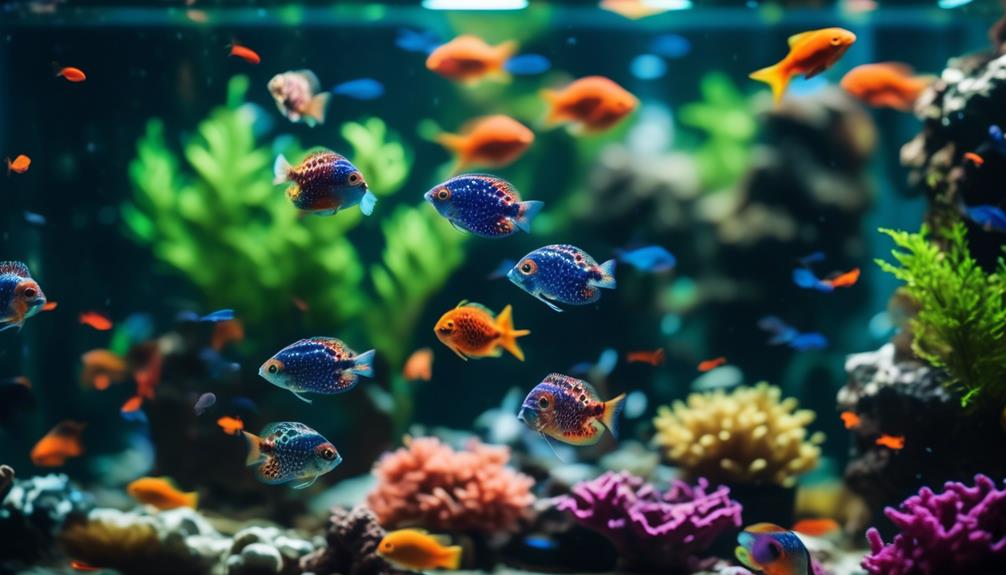
Mollies, being freshwater fish, are often grouped with Swordtails and Guppies in the livebearer category. When it comes to group and compatibility, here’s what you need to know:
- Peaceful Nature: Mollies are peaceful fish that can be kept in a community tank. They get along well with tetras, barbs, rasboras, and corydoras catfish.
- Tank Mates: It’s important to choose suitable tank mates for your Mollies. Avoid aggressive or fin-nipping fish that might harm them.
- Social Behavior: Mollies are social creatures and prefer to be kept in groups. A group of at least three mollies is recommended to ensure their well-being.
- Gender Ratio: To avoid aggression and breeding issues, it’s best to keep a higher number of females than males in the tank.
Water Conditions
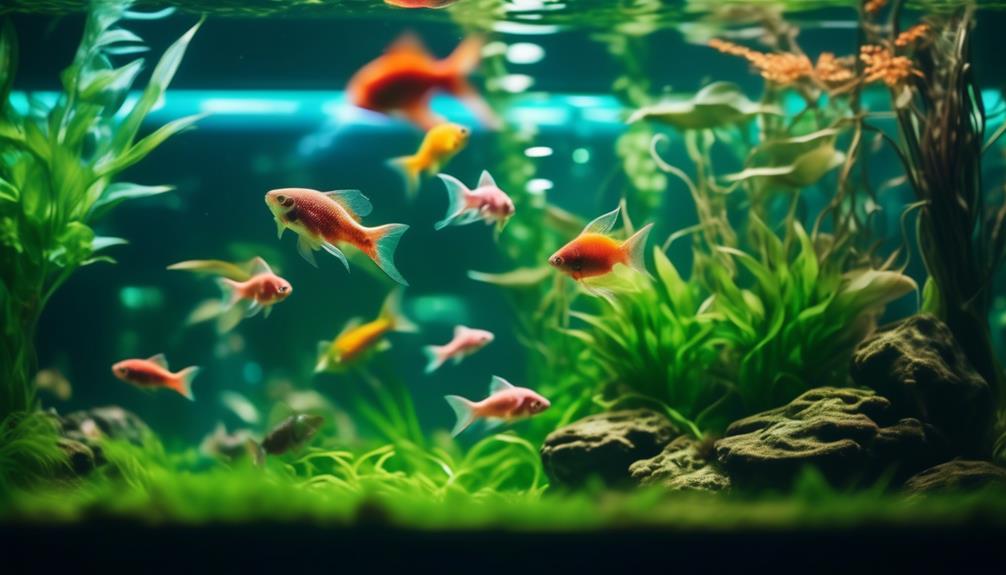
To ensure the optimal health and well-being of your Mollies, it’s crucial to pay close attention to the water conditions in their aquarium.
Mollies prefer warm water, so it’s important to maintain a temperature between 68F and 82F. They thrive in hard water with a pH between 7.0 and 7.8. Mollies can tolerate brackish water conditions, but the water hardness should be between 10 and 25 KH.
Regular monitoring of water parameters is necessary to ensure the water conditions remain within the appropriate range.
Additionally, providing a balanced diet and suitable tank mates is important for the overall well-being of your Mollies.
General Description
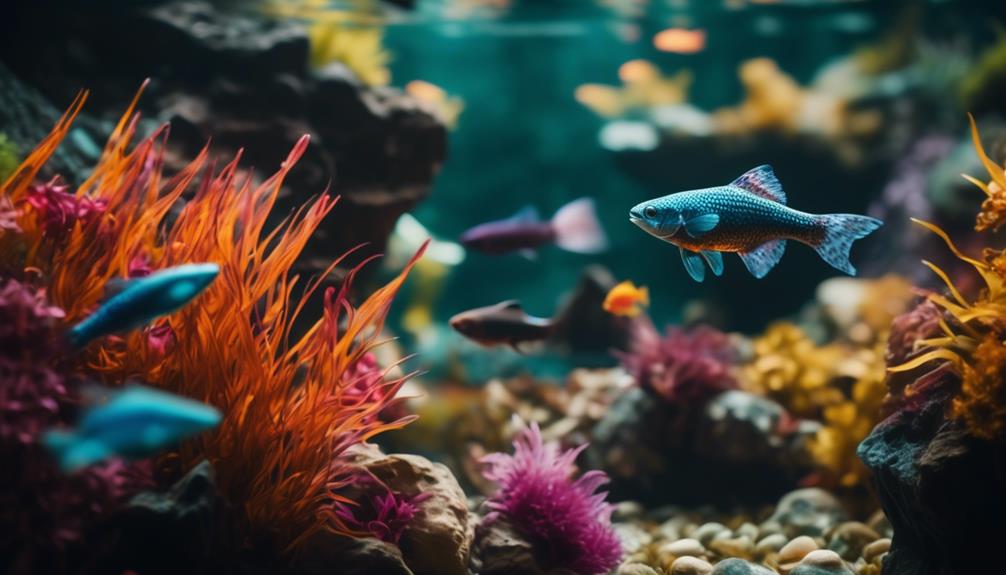
Mollies, a type of freshwater fish known for their peaceful temperament, are typically around 3 to 4 inches in size and come in a variety of colors and patterns. They’re popular for community tanks because of their compatibility with other fish species. Here is a deeper understanding of their general description:
- Peaceful Temperament: Mollies have a calm and non-aggressive nature, making them suitable for a peaceful community tank.
- Size: On average, they grow to a size of 3 to 4 inches, making them a great addition to small to medium-sized aquariums.
- Color and Patterns: Mollies come in a wide range of colors and patterns, adding visual appeal to your aquarium.
- Freshwater Fish: Mollies are freshwater fish that thrive in a well-maintained tank with suitable water conditions.
With their peaceful nature, vibrant colors, and manageable size, Mollies make an excellent choice for aquarium enthusiasts.
Feeding and Diet
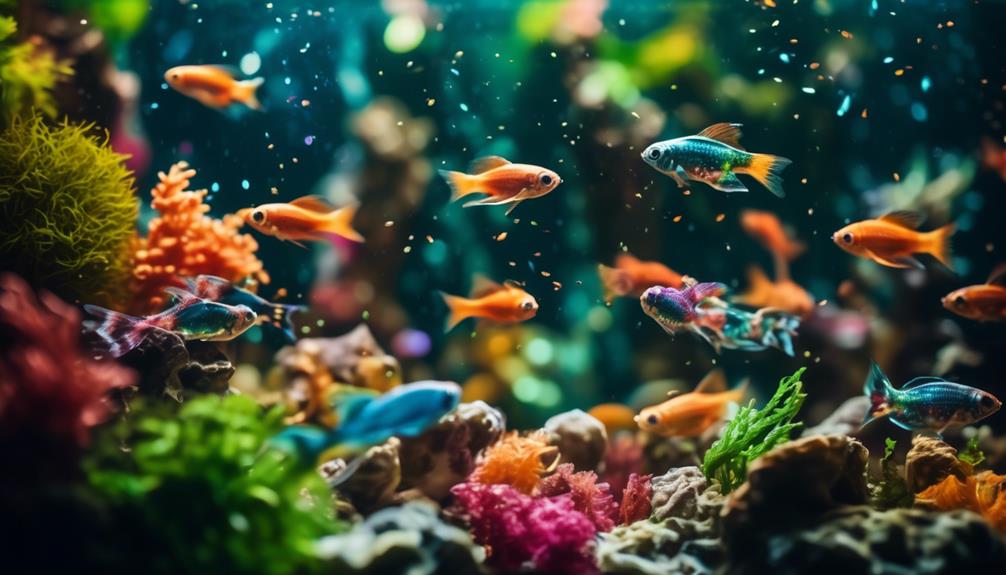
Feeding and Diet for Mollies is an essential aspect of their care and well-being. Mollies are omnivorous fish, meaning they eat both plant matter and small invertebrates. Providing a varied diet is crucial for their health. In the table below, you can find a list of suitable foods for Mollies:
| Food Type | Description | Benefits |
|---|---|---|
| Flakes | Nutritious and easily consumed | Promotes growth and vibrant coloration |
| Pellets | Balanced nutrition | Supports overall health and vitality |
| Frozen Foods | Brine shrimp, bloodworms, and daphnia | Enhances natural feeding behaviors |
| Vegetables | Spinach, peas, and zucchini | Provides essential vitamins and minerals |
| Live Foods | Mosquito larvae and small worms | Offers natural prey simulation |
Remember to feed your Mollies small amounts multiple times a day to prevent overeating and maintain water quality. A well-fed Mollie is a happy and healthy fish!
Breeding and Reproduction
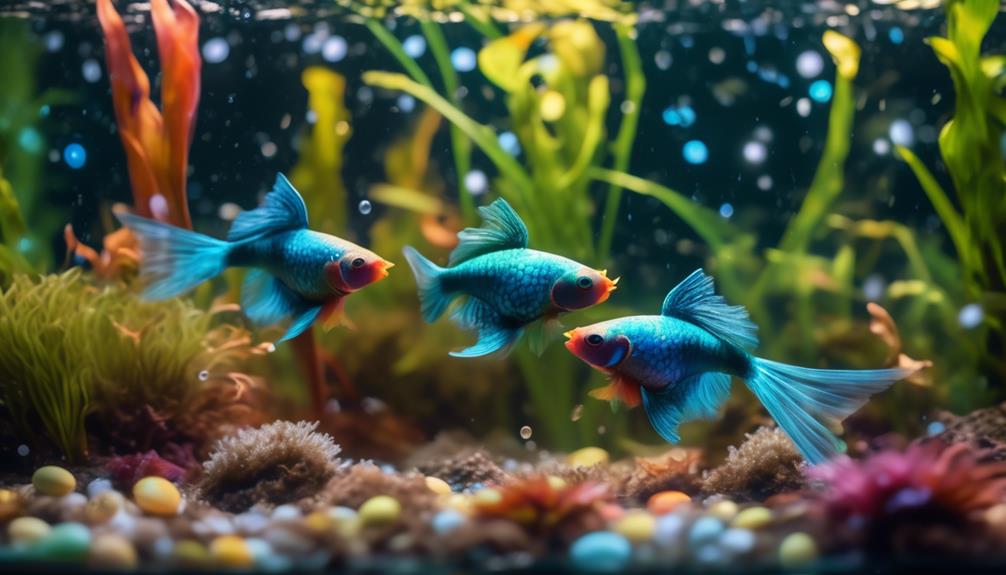
Now let’s explore the fascinating world of Mollie breeding and reproduction. Breeding Mollies can be an exciting and rewarding experience for aquarium enthusiasts. Here are four important things to know about their breeding and reproduction:
- Livebearers: Mollies are livebearers, which means that they give birth to live young rather than laying eggs. This makes them unique and adds to their appeal as aquarium fish.
- Gestation period: The gestation period for Mollies is approximately 4 to 6 weeks. During this time, the female Mollie will carry the developing fry in her body until they’re ready to be born.
- Separating fry: Once the fry are born, it’s important to separate them from the adult Mollies to prevent them from being eaten. A separate breeding tank or a breeding net can be used for this purpose.
- Fry care: The fry of Mollies are relatively easy to care for. They should be fed a diet of powdered or crushed fish food until they’re large enough to eat regular-sized pellets or flakes.
Common Health Issues
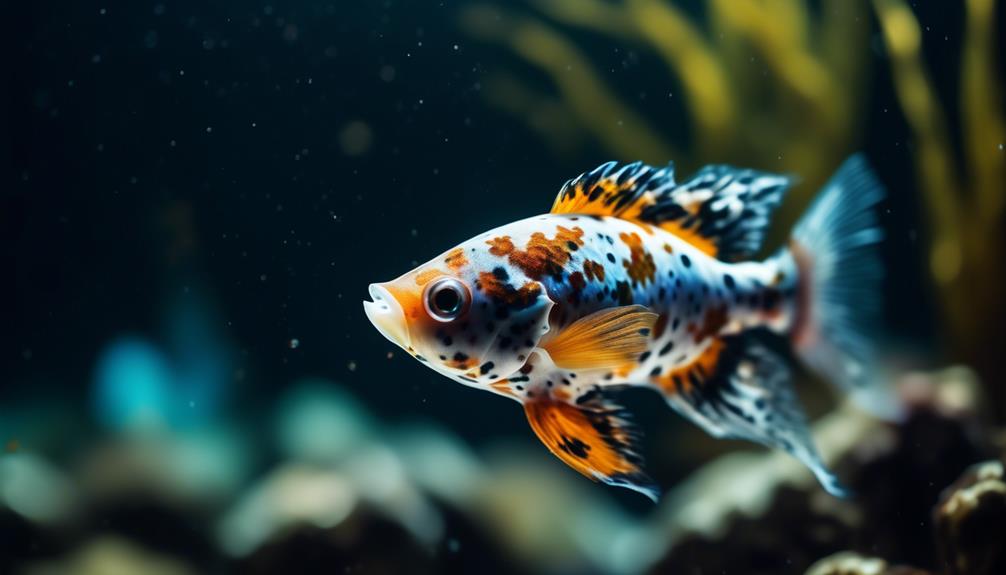
One common health issue that aquarium enthusiasts may encounter with Mollies is fin rot. This is a bacterial infection that affects the fins of the fish. You may notice that the fins become frayed, discolored, or develop holes. Fin rot can be caused by poor water quality, stress, or injuries.
To prevent fin rot, it’s important to maintain good water conditions by regularly testing the water parameters and performing water changes. Providing a well-balanced diet and keeping the fish in a stress-free environment can also help prevent this condition.
If you notice signs of fin rot, it’s important to take immediate action. Treatments such as antibiotics and improving water quality can help to stop the progression of the disease and promote fin regrowth.
Tips for Mollies’ Well-being
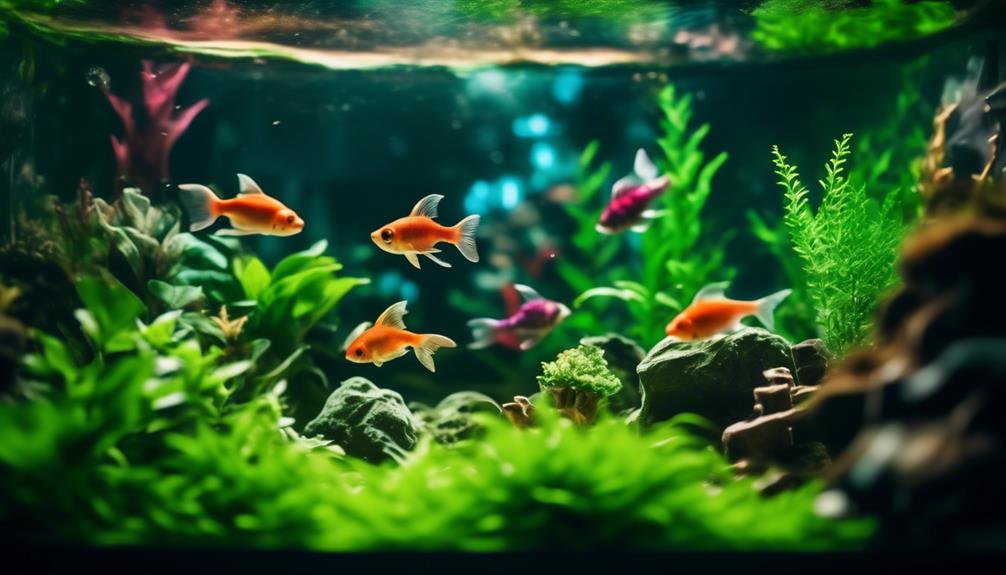
To ensure the well-being of your Mollies, it’s important to follow these tips for their care and maintenance:
- Provide a suitable aquarium size: Mollies can adapt to different tank sizes, but they require enough space to swim and explore. A larger tank can accommodate a larger number of Mollies and should have proper filtration and maintenance.
- Ensure proper water conditions: Mollies prefer warm water with a temperature range between 68F and 82F. They thrive in hard water with a pH between 7.0 and 7.8. Regular water changes and monitoring of water parameters are necessary to maintain optimal conditions.
- Choose compatible tank mates: Mollies are peaceful and can be kept in a community tank. They can coexist with tetras, barbs, rasboras, and corydoras catfish.
- Provide a balanced diet: Mollies require a varied diet that includes high-quality flakes, pellets, and live or frozen foods. Feeding them a balanced diet will ensure their overall health and well-being.
Frequently Asked Questions
What Is the Lifespan of Mollies?
The lifespan of mollies can vary, but on average, they live for about 3 to 5 years. Providing proper care, a balanced diet, and a suitable environment can help maximize their lifespan.
Can Mollies Be Kept in a Saltwater Aquarium?
No, mollies cannot be kept in a saltwater aquarium. They are freshwater fish that prefer hard water conditions. Mollies can tolerate brackish water, but saltwater would not be suitable for their health and well-being.
How Often Should Mollies Be Fed?
You should feed mollies once or twice a day. It’s important to provide them with a balanced diet and not overfeed. Feed them only what they can consume in a few minutes.
Do Mollies Require Any Specific Type of Substrate in Their Tank?
No, mollies do not require any specific type of substrate in their tank. They can thrive in various substrates, such as gravel or sand. Just make sure it is clean and doesn’t have any sharp edges.
Are Mollies Prone to Any Specific Diseases or Health Issues?
Mollies can be prone to specific diseases and health issues. It is important to monitor their health regularly and provide proper care. Being proactive in maintaining water quality and providing a balanced diet can help prevent potential health problems.
Do Mollies and Clownfish Get Along in the Same Aquarium?
Mollies and clownfish in saltwater aquariums can coexist peacefully if the tank is large enough and they have plenty of hiding spaces. Mollies are typically peaceful fish and can share the same environment as clownfish without any issues, as long as the tank conditions are suitable for both species.
Conclusion
In conclusion, Mollies are the perfect fish to add to your aquarium. With their adaptability, peaceful nature, and vibrant colors, they bring life and beauty to any aquatic environment.
Whether you have a small or medium-sized tank, Mollies can thrive and make themselves at home. By providing proper care, balanced diet, and suitable tank mates, you can ensure their well-being and enjoy their presence for years to come.
So don’t hesitate, add Mollies to your aquarium and enhance your aquatic world!

